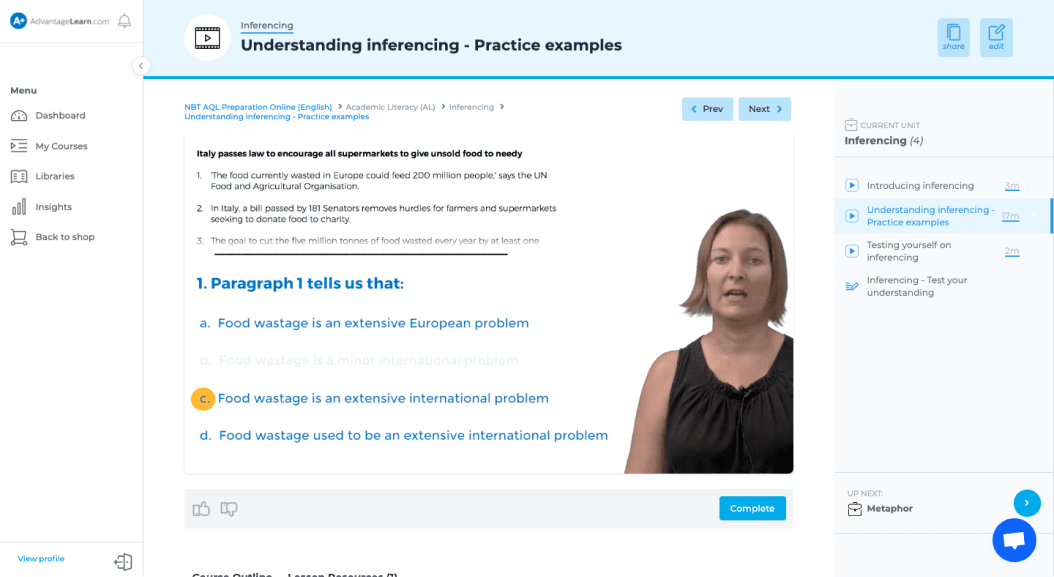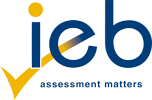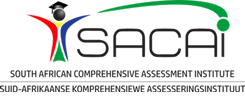
Ask us about the NBTs..
How to register for the NBTs
- Your school’s calendar for sporting and social events, holidays and exams
- Closing dates and application deadlines at all institutions where you intend to apply
- The language of instruction where you are applying
- AQL only R145.
- AQL and MAT R290.
- Re-mark R250
2024 NBT test dates
What is the NBT test?
The NBT test is a set of tests used to assess a learner’s academic literacy, general knowledge, and mathematical skill in an effort to measure academic readiness for university.
NBT stands for National Benchmark Test. This is an examination set up by the National Benchmark Test Project. The NBT is a set of tests used to assess a learner’s academic literacy, general knowledge, and mathematical skill in an effort to measure academic readiness for university.
The NBT tests were implemented in 2008 and are managed by the Alternative Admissions Research Project at the University of Cape Town. NBT results are used by many universities as an extra admission criterion for applicants to their institutions. They serve to complement and support, rather than replace or duplicate NSC results.
Dr Abbey Mathekga, the head of the higher education enrolment programme, said: “They [the NBTs] are intended to identify learners who might have problems in certain subjects. They are also aimed at determining the level of competency of learners in certain learning areas.” The NBT consists of two tests: the MAT and the AQL. The AQL (Academic Quantitative Literacy) is one multiple-choice test of three hours of writing time. The MAT (Core Maths) is also a multiple-choice test with three hours of writing time. Both papers are written on the same day.
The NBTs are available in English and Afrikaans. When you register you will be asked to indicate the language in which you wish to write. Note that you can only use one language i.e there is no option to write one test in English and the other in Afrikaans.
When can I write my NBT test?
Each university and department will have different requirements for when you need to write your NBT test. Some might be as early as June or July. This is one of the reasons why the NBT is so confusing! Our top piece of advice is to choose a date that fits in with your application requirements AND is at a time when you can give it the attention it deserves (i.e. make sure to check your school calendar to ensure you don’t have other important school events in that week).
Available data by the NBT suggests that learners who write the tests later in the year have no advantage over those writing in earlier sessions. The test changes as the year progresses in order to maintain the validity of the test. From Advantage Learn’s experience and certainly our NBT expert and teacher, Mrs Pike, we recommend that learners should write this test as early as possible in the year and definitely before trials. The earlier a learner writes, the less content they have to learn for the test. Up until the end of June, the content tested is predominantly Grade 11 work and the first term of Grade 12 (Sequences and Grade 12 Trig). This makes the July holidays (4 term schools) ideal to give yourself enough time to prepare properly. Those applying for Medical and Health Science degrees have until the end of the first week in July to write their NBTs. If you are wanting to come to one of our preparation courses, then you should try to write your NBT test about a week later. Time must be given to working through the workbook and AQL modules before writing the NBT test.
NBT results are valid for three intake years. This means that it is worthwhile writing your NBT in your Matric year even if you are having a gap year. Your syllabus will never be fresher in your mind as it is now.
If you cannot write the NBTs in the year before your studies (if, for example, you are overseas), you are allowed to write them in January before the start of the academic year. Bear in mind, however, that you do expose yourself to special risks and practical implications in terms of placement and selection if you write the tests at such a late stage. It is therefore strongly recommended that you write the NBTs in your Matric year.
What are the NBT tests like?
How do I get my NBT test results?
Click this link to go to the NBT results request page.
Do I have to send my results to the universities I am applying to?
The universities request your results from the NBT you do not send them to the university. The NBT charges the University to release the results to them and the 1 test will apply to all universities that require it.
Didn't get the results that you wanted?
We offer a few online courses that will help increase your results. Our NBT Preparation Online Course will help you improve your MAT and AQL results.
Which institutions will use my NBT results and how do they get them?
Which institutions will use my NBT results and how do they get them? All the universities to which you apply can receive your NBT results. Many South African universities use the NBTs in conjunction with the National Senior Certificate (NSC) for access to their programmes. The NBTs help to interpret your NSC results and can be used by universities in different ways.
- Some use them to help make decisions about your access/application to university. This means that your NBT results, in combination with your matric results, are used to determine whether you are ready for academic study.
- Some universities use the results for placement within the institution. This means that your NBT results are used to decide whether you will need extra academic support after you have been accepted to university.
- Some institutions use them to develop curricula within their university.
When you apply to an institution, they will place your name on their applicant list. As applications are processed, they send the NBT Project a request for scores that match the applicants on the list. Universities will only get your results when they request them.
Before you submit your registration to write the NBT, you are asked to check a box giving permission for your results to be sent to the requesting institutions and for your results to be used in research projects. Be sure to read this and check this box before hitting “submit”. Remember, it is your responsibility to check whether your NBT results have been loaded with your tertiary institution.
Can I write the NBTs more than once?
How to prepare for the NBT?
Trust us, we've been doing this for years.
NBT Online course

NBT Workshops
Our NBT Workshops are a 9 - hour course where the teacher covers predominantly material tested in the MAT. Our learners will be referred to the Academic and Quantitive Literacy components in our online course for study. The NBT Workshops are run on the weekend (and some public holidays). Some Workshops are full-day courses (9 hours) and others are split over Saturday and Sunday mornings (4.5 hours each). This was carefully thought out in an effort to accommodate sporting commitments as well as those learners who battle to concentrate for long stretches at a time. Our NBT Workshops can be booked as live-online workshops where learners are able to attend lessons via live-stream. Alternatively, lessons can be attended in-person in a venue near you! We have workshops covering all major metros in South Africa. Click here to find our more about our NBT workshops. NBT courses for schools We offer our NBT preparation course solution to schools. If you would like to speak to one of our team about these packages then please Email us at [email protected].





NBT Resources
- Email: [email protected]
- Telephone: 021 650 3523
- Website: www.nbt.ac.za
- NBT Brochure click here for more info.
- More about the NBTs click here.
- More about the NBTs online click here.
- Book your NBT test click here.
- NBT 2024 Test Dates click here
- NBT test sites click here for more info.
- To request your NBT Test Scores Log into your NBT account here.
University info
- University of Cape Town click here for more info.
- Wits University Click here for more info.
- Stellenbosch University click here for more info.
- Rhodes University click here for more info.
- University of Pretoria click here for more info.
- University of the Free State click here for more info.
NBT Information disclaimer
How is the style of the NBT assessment different to assessment styles learners are used to?
Unlike the US and the UK and many other countries that model their education system around standardised assessments (eg. SATs, ACTs etc) our South African school system more commonly uses summative, continuous and formative styles of assessment (for an explanation of these styles read more here). The NBTs are a standardised assessment and thus this form of assessment is not common for many South African learners.
So how does this form of standardised assessment differ from the usual forms of assessment employed?
Here are some examples:
- They are multiple-choice based. This is unfamiliar answering territory for many learners and so needs practice before-hand in order to build confidence.
- The questions are formed around right AND wrong answers and not just the correct answers like we are used to. In other words, you will be faced with a situation where you think to yourself, but BOTH A AND B could be right. This can be really scary. At a high school level, we are groomed to try to get the CORRECT answer hence questions are formed to lead learners to the correct answer.
- There are no marks for working and hence the questions are formed to test absolute accuracy. This makes it critical to work efficiently and accurately!
- The order of difficulty does not build through the assessment. The hardest question might be the first question and this often throws learners off from the get-go.
- A one-time assessment! Most learners write this assessment once and the results are used for university applications. At school, we are used to building our results through many different methods.eg. continuous assessment, outcomes-based projects and portfolios of evidence etc.
- You can’t use a calculator
- You don’t know ahead of time what is going to be tested - in school you know at least what part of the syllabus is going to be tested.
We could go on for ages but I think you get the message, it is very different to what you are used to!
What to expect on the NBT test day?
Writers are reminded that the test is undertaken in a secure proctored online environment. You will be monitored throughout the test to ensure that you follow all testing procedures. Your entire test session will be recorded. You may only have a piece of paper and a pen/pencil in the test room. Books, cell phones, smartwatches, calculators, and any other items are strictly prohibited. Please ensure that you comply with all test requirements to avoid the invalidation of your test.
Instructions will be provided on screen.
- Online Test sessions start times will be communicated to you for each session. For most test dates the morning sessions start at 09h00 and afternoon sessions start at 14h00. Please login 30 minutes prior to the start time to allow for the Lockdown Browser Download.
- Each test has a duration of 3 hours. Please ensure that laptops, computers, routers, mobile hotspots etc. remain connected to mains power/chargers to avoid battery failure during the tests. Should your device shut down you will be exited from the session.
- You will require approximately 500mb to complete each test including the Lockdown Browser download. Please ensure that you have sufficient data available.
- You should take your test in a quiet room with a blank wall behind you, with good lighting.
- The Laptop or Computer camera must be operational and facing your face at all times during the test, otherwise, your session may be invalidated. There is a photo panel visible to you during your test so that you can check your camera is functional and your face visible.
- Your face must be visible so no hoodies or clothing that completely obscures the face are allowed.
- You may not wear headphones during the test session.
- Any other person entering the room, or movement in the room will be picked up by the camera and will invalidate your test session.
- You may only have a piece of paper and pen/pencil in the test room. Books, cell phones, smartwatches, calculators and any other items are strictly prohibited. These items will be picked up by the system and will invalidate your test session.
- Bathroom breaks are permitted but must be less than 5 minutes in duration. Please ensure that you do not exit the test or the lockdown browser and ensure that your laptop or computer does not enter “sleep” or “screen/power saver” mode while you are away as this may affect your session.
- You may have a bottle of water (or another liquid refreshment) with you during the test.
How long are the NBT tests?
Writers must login to the test site by 14h30. Writers that did not login to the test simulation (required) will be required to capture a Photograph and download the Lockdown Browser.
What NBT results do I need
| Degree | Recommended Test Date | MAT or AQL | NBT result to aim for | ||
|---|---|---|---|---|---|
| MAT | AL | QL | |||
| Medicine | Before 1st July | Both | 90% | 70% | 80% |
| Engineering & Built Environment | Before 1st July | Both | 80% | 65% | 80% |
| Business Science | Before August | Both | 75% | 65% | 60% |
| BCom | Before August | Both | 60% | 60% | 50% |
| Health Science | Before August | Both | 70% | 70% | 70% |
| BSc | Before Trial exams | Both | 65% | 65% | 60% |
| BA Law | Before Trial exams | AQL | - | 60% | 50% |
What is the difference between AQL and MAT?
The NBT test assesses readiness for tertiary study. It is made up of two assessments: AQL and MAT.
- The Academic Literacy (AL) sections will require reading of various texts with multiple choice questions referring to the text. Some questions are general knowledge-based. Questions on grammar, punctuation, vocabulary are included. It predominantly assesses the ability to understand the meaning and application of various texts as well as understanding and applying the argument or main point of the author.
- The Quantitative Literacy (QL) sections assess a student’s capacity to: understand basic numerical concepts, read and interpret graphs, reason logically and identify patterns and trends. It is largely based on the Grade 11 Maths Literacy syllabus.
The MAT paper is a separate three hour paper (only written by learners applying for certain degree programmes and who have done Core Maths at school) and assesses mostly Grade 11 Core Maths syllabus content although some Grade 12 work is included, depending on the time of year the assessment is written. It also takes a multiple-choice format. It tests proficiency in such areas as problem solving and modeling, functions, trigonometry, spatial perception, and probability.
Both the AQL and MAT are differentiated into cognitive levels, meaning there is a range in difficulty in each section – with the easier applications generally coming first.


























